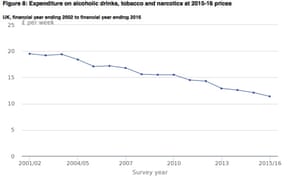Millions of Britons could have their access to free health insurance taken away after Brexit, a parliamentary report has said.
MPs on the health select committee urged the government to offer more guarantees for Britons visiting the continent after hearing evidence that without the right to receive treatment in countries that are part of the European Economic Area, people with cancer could find it too expensive to go to Europe.
In a strongly worded report on the effect of Brexit on health and social care, the committee said the challenges created by losing reciprocal health arrangements should not be underestimated.
British travellers can currently use the European health insurance card, which guarantees access to healthcare free or at a reduced cost in Europe. The EU member state providing treatment is able to claim back costs from the patient’s home country. Some estimates suggest that up to 27 million Britons have the cards.
The inquiry heard evidence that losing this agreement could create challenges for many travellers, including disabled people and those with mental or physical health conditions. Prof Martin McKee of the London School of Hygiene and Tropical Medicine said a week’s full private health insurance for a holiday in France for someone with diabetes or mild depression would cost between £800 and £2,500.
The report also noted that hundreds of thousands of expats living abroad could lose reciprocal healthcare rights, leaving some facing hardship. McKee, a professor of European public health, said many Britons in Spain have properties that are now worth little. “Many will come back in a state of poverty because they bought properties in Andalusia and other places … They will be throwing themselves on the mercy of the state when they come back,” he said.
Christopher Chantery, a British resident in France, told the committee many pensioners moved to the country “in good faith on the implicit promise that these arrangements would continue. Suddenly, something happens that brings those arrangements to an end. It is absolutely terrible for many people”.
British nationals living abroad have to get an S1 form, which gives them health cover, paid for by the UK, within Europe.
The committee, which includes Labour and Conservative MPs, called on the government to preserve the existing system as opposed to seeking a new arrangement. What was currently in place offered taxpayers good value for money, it said.
In the same report, the committee warned that the Brexit vote could lead to a brain drain, with morale among EU nationals in the NHS low due to uncertainty about their future. It called for more reassurances and said the government should continue to be able to recruit the “brightest and best from all parts of the globe” after Britain leaves the EU.
The Department of Health could not comment due to general election purdah rules. But when asked about reciprocal healthcare at the start of the year, the health secretary, Jeremy Hunt, said it was one of the rights of those who retired to Spain or France and he wanted to secure it early on in negotiations, but could not guarantee this.
Speaking to the Guardian, Prof Jean McHale, the director of the Centre for Health Law, Science and Policy at the University of Birmingham, said: “If questions of healthcare provision and patient mobility are not included in the negotiations, if there is not a transitional period and we move to hard Brexit, there will be major practical questions. What happens at midnight on Brexit D day to the person in hospital in another EU member state who has been in a car accident?”
Britons could lose health cover in Europe after Brexit, report warns


